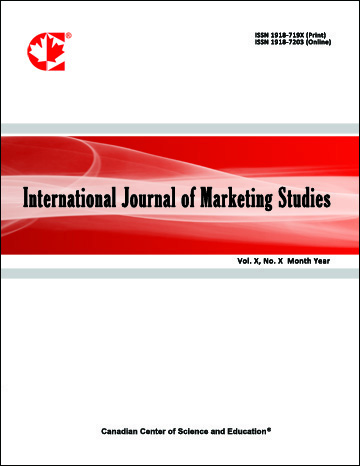Measuring Religiosity in Consumer Research from Islamic Perspective
- Hamza Khraim
Abstract
In a constantly changing and increasingly globalized world, the construct of culture and subculture have becomeincreasingly central to the consumer behavior literature. Religion still plays a significant role in influencing
social and consumer behavior. This paper will shed some light on measuring religiosity fom Islamic perspective.
All possible alternatives within different dimensions were assessed to find out the most suitable combination of
dimensions that gives the best results in measuring Islamic religiosity. Seven Factors were extracted by factor
analysis form the four dimensions. The findings of the study indicated that the combination of three dimensions
namely (Current Islamic issues, religious education, and sensitive products) produce the best results among other
dimensions.
- Full Text:
 PDF
PDF
- DOI:10.5539/ijms.v2n2p166
Journal Metrics
Google-based Impact Factor (2021): 1.34
h-index (July 2022): 70
i10-index (July 2022): 373
Index
- Academic Journals Database
- CNKI Scholar
- EconBiz
- Electronic Journals Library
- Excellence in Research for Australia (ERA)
- GETIT@YALE (Yale University Library)
- Harvard Library
- IBZ Online
- Infotrieve
- JournalTOCs
- LOCKSS
- MIAR
- PKP Open Archives Harvester
- RePEc
- ResearchGate
- ROAD
- Scilit
- SHERPA/RoMEO
- Stanford Libraries
- UCR Library
Contact
- Alyssa SunEditorial Assistant
- ijms@ccsenet.org
